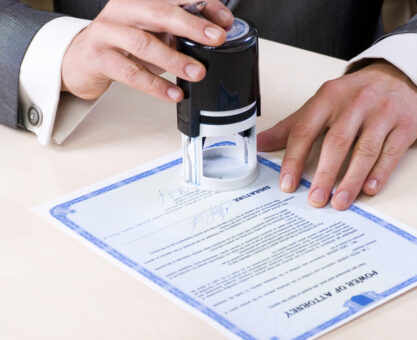Even if you don’t feel you need to put together a comprehensive estate plan, it’s important to have an Advance Care Plan in place in the event you’re unable to make your own healthcare decisions. Otherwise your state law will determine who can make these decisions for you.
What Is Advance Care Planning?
As you plan your federal retirement it’s important to also plan for the possibility of a medical crisis that leaves you incapacitated. To ensure your preferences for healthcare are honored, a good Advance Care Plan starts with discussing your intentions with your spouse and other family members. Once you’ve made your wishes known, the next step is making it official by putting it all in writing.
Different Types Of Advance Care Directives
Advance Care Directives are known by different names depending on where you live. That’s why it’s important to check which documents your state law requires. An Advance Healthcare Directive usually combines a Living Will, which describes your preferences for healthcare, plus a Power of Attorney for Healthcare that names the person you’ve selected to make healthcare decisions if you become incapacitated. This type of directive is also known as Medical Power of Attorney, Health Care Power of Attorney, Designation of Health Care Surrogate, or Health Care Proxy.
“Keep in mind that DNR orders only apply to healthcare professionals. In fact, in some states, a DNR order is only valid in a hospital.”
What You Need To Know About Do-Not-Resuscitate Orders (DNRs)
A Do-Not-Resuscitate (DNR) order is a legal document confirming that you do not want CPR performed on you if your heart or breathing ceases. This document is also known as a Do-Not-Attempt-Resuscitation (DNAR) order or an or an Allow-Natural-Death (AND) order. It’s usually signed by you and your healthcare provider. Keep in mind that DNR orders only apply to healthcare professionals. In fact, in some states, a DNR order is only valid in a hospital. Other types of similar orders include:
- Do-Not-Intubate (DNI): informs hospital that you don’t want to be on a ventilator.
- Do-Not-Hospitalize (DNH): informs long-term care providers that you do not want to be hospitalized for end-of-life care.
- Out-Of-Hospital DNR: informs EMS providers of your wishes if you’re not in a hospital.
Creating An Advance Care Plan Ensures Your Wishes Are Respected
Far too many people assume their family already knows their preferences for end-of-life care. However, according to the National Institute on Aging, this isn’t the case. In one study, “… people guessed nearly one out of three end-of-life decisions for their loved one incorrectly.” If you have questions about preparing an Advance Care Plan and other estate-planning documents, connect with an FRC® trained advisor.
























